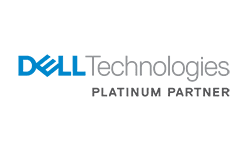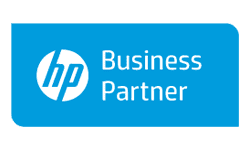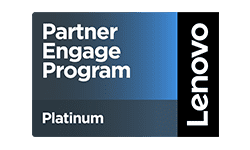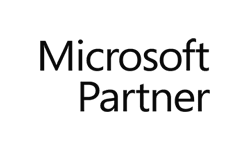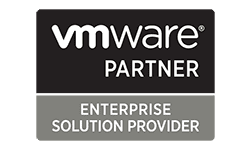How to Determine Outsourced IT Service Desk Pricing Guide
Understanding the Key Factors that Determine Outsourced Service Desk Support Costs
Editorial Team
5 Min Read
To operate effectively, a service desk must have enough support to handle internal and external inquiries quickly and efficiently. One of the most practical solutions for accomplishing these goals is utilizing outsourced service desk solutions from a dependable, experienced provider. Because many providers offer several pricing models, organizations must understand how each one works before choosing the ideal option for their operation.
At GDC, we offer solutions tailored to your organization’s specific service desk needs. Our team can walk you through the options and help you develop a customized solution that maximizes your service desk’s performance. Learn more about the critical factors determining outsourced service desk pricing.

Outsourced Service Desk Support Cost Influences
Different vendors offer various pricing models for their outsourced service desk solutions. Choosing the most practical and economical option can often be challenging without identifying your existing service desk’s most critical performance metrics. While some providers offer a flat-rate pricing model across the board, others may base their prices on the services they deliver for each call.
Some questions to ask prospective service providers when discussing an outsourced service desk plan are whether they charge for overages, how exactly they handle an increase in call volumes, and whether they allow switches between pricing models without incurring a penalty.
Agreements between the provider and client define the service levels that the service desk will provide and typically include a series of metrics and other factors that impact a pricing arrangement.
Efficiency Metrics
Efficiency metrics help measure the ability to perform the maximum number of tasks with the least time or effort. Several factors can affect service desk efficiency:
- Average speed of answering: Average speed of answering (ASA) is the time it takes for an agent to answer a call, from when a customer enters a queue until the moment the agent connects with them. Companies also refer to this metric as the average call delay.
- Average abandon rate: Abandoned calls occur when a caller hangs up before connecting to a live agent at the help desk. The average abandoned rate (ABA) is the number of abandoned calls divided by the total number of inbound calls.
- Average handle time: Average handle time (AHT) measures the average time it takes to resolve a transaction. AHT factors in the time agents speak to customers and how long the callers are on hold.
Effectiveness Metrics
Effectiveness metrics measure how well an agent meets callers’ needs. Specific metrics that help determine effectiveness levels include:
- First-level resolution: First-level resolution (FLR) calculates a help desk’s ability to resolve a ticket at Level 1.
- First-call resolution: First-call resolution (FCR) is the percentage of calls the help desk resolves on the first interaction with the caller.
Other Factors That Can Influence Cost
Beyond these metrics, several other factors are beneficial in determining the pricing structure of a specific help desk model. These include:
- Call volume forecasting: Call volume forecasting estimates the total number of calls a service desk receives over a particular period. This estimate is critical because it helps determine how many agents a service desk needs to operate efficiently and effectively.
- Workforce management tools: Workforce management tools help solve the challenges of inbound calls with features like scheduling mechanisms, forecasting algorithms, meeting planners, and reports. The benefits of these tools help increase help desk service levels and minimize operational costs.
- Quality audits: Quality audits collect and evaluate the overall performance of an organization’s service desk, including incident reporting. These audits ensure organizations document all problems reported by callers.
- Reporting: Reports analyze metrics like average response times, customer satisfaction, and the volume of tickets a service desk receives. Real-time reporting and customized monitoring can significantly affect the pricing of an outsourced arrangement.
- Escalation protocols: Escalation occurs when the initial agent responding to a call cannot resolve a customer’s issue, prompting the need to forward the call to a higher service level. Some service desks escalate incidents automatically. Others use functional or hierarchal escalation protocols based on an agent’s knowledge, experience level, or seniority.
Customer Satisfaction Surveys and Ratings
Customer satisfaction (CSAT) is a metric that measures the overall performance of a service desk based on every caller’s interaction. Once a service desk collects a set number of customer service surveys, it can calculate a percentage relative to the total number of satisfied callers.
GDC’s Custom Outsourced IT Help Desk Pricing Arrangements and Benefits
At GDC, we provide businesses with superior outsourced help desk solutions to manage technical support and customer service in varying capacities. Learn more about our pricing arrangements.
Fixed Price per Month With Maximum Volume
Most clients with a consistent volume of tickets per month can benefit from a fixed price up to the monthly maximum, only paying more if they go over the limit. Features of this arrangement include:
- An overage beyond the maximum based on a price-per-ticket cost.
- A discounted rate up to the monthly maximum volume.
Fixed Price per Ticket With Minimum Charge
Customers with ticket volumes that change monthly can benefit from a fixed price per ticket, allowing them to only pay for the services they use. Features of this arrangement include:
- A total monthly charge based on either the minimum or price per ticket, whichever is greater.
- A minimum readiness-to-serve fee.
Fixed Price per Employee
Large organizations with consistent monthly ticket volumes and a steady employee headcount can benefit from a per-employee pricing structure considering these factors. The pricing varies monthly based on each IT user across the organization.
Trusting GDC for Outsourced Help Desk Support
If you’re ready to take the next step in implementing GDC’s outsourced support services into your operation, our experts can guide you. Connect with us online today to schedule an on-site assessment, obtain pricing, or request additional information on a plan that benefits you most.
